|
|
| |
|
| |


SpringerBriefs in
Environment, Security, Development and Peace (ESDP)
A Peer-reviewed Book Series
Edited by
Hans Günter Brauch,
AFES-PRESS, chairman
Free University of Berlin (Ret.)
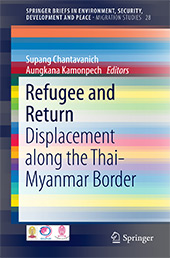 |
Supang Chantavanich, Aungkana Kamonpech (Eds.): Refugee and Return: Displacement along the Thai-Myanmar Border. SpringerBriefs in Environment, Security, Development and Peace, vol. 28 (Cham– New York – Heidelberg – Dordrecht – London: Springer International Publishing, 2016).
ISBN (Print): 978-3-319-41750-9
ISBN (Online/eBook): 978-3-319-41752-3
DOI: 10.1007/978-3-319-41752-3
Order this book on the Springer Website
Order Form |
| |
|
About this book
After more than 60 years of conflict, displacement, Myanmar is now in the midst of political reform. A new nominally civilian government and pledged elections in 2015 have raised hopes of a lasting democratic transition after decades of military rule. For the first time in decades, repatriation of refugees in Thailand is being discussed as a real and imminent possibility. This book provides a background on the situation of protracted displacement of several ethnic groups along the Thai-Myanmar border and then sets out to examine whether Myanmar has shifted into a post-conflict society, the expected challenges of reintegration of returnees in Myanmar, and the possibility of voluntary and sustainable repatriation. The authors conclude that given current ongoing security challenges and the dearth of economic livelihood opportunities in Myanmar, voluntary repatriation is not yet feasible as a durable solution.
-
Contains new innovative research and applications for researchers, practitioners, and students
-
Chapters are authored by researchers from Myanmar with access to first-hand sources, especially publications printed only in local language(s)
-
-Offers multi-disciplinary perspectives on repatriation and post-conflict society.
Contents
Chapter 1: Introduction: Background of protracted conflict and displacement in Myanmar Supang Chantavanich and Aungkana Kamonpech -- Chapter 2. Sustainable Return: A case study of Indochinese refugee return in the 1980s - Min Ma and Vongsa Chayavong -- Chapter 3. Myanmar as a Post-Conflict Society? - Lahpai Nang Sam Aung and Hkawn Ja Aung -- Chapter 4. Challenges of Reintegration for Returnees in Myanmar - Nwe Ni Win Kyaw and Ni Ni Win -- Chapter 5. Analysis and Conclusions on Voluntary Repatriation - Supang Chantavanich and Aungkana Kamonpech.
On the Editors
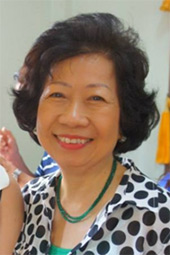 |
Supang Chantavanich (Thailand) is a professor emeritus at the Faculty of Political Science, Chulalongkorn University. She is also the director of the Asian Research Center for Migration (ARCM) within the Institute of Asian Studies at Chula. During 2010–2011, she cooperated with UNDP to lead the research project “Sustainable Solutions to the Displaced Person Situation on the Thai–Myanmar Border” with EU funding. The project covered six studies of situational and policy analyses of displaced persons along the western borders in Thailand. After she graduated in Sociology from the University of Grenoble, France, Supang Chantavanich focused her teaching and research areas on South East Asian society and culture, sociological theories, qualitative research, migration and development, the overseas Chinese, education and Commission for Asia and the Pacific) during 1987–88 where she conducted a field study on land use in major cities, focusing on metropolitan fringe development, and as a Consultant to the Royal Forest Department, Ministry of Agriculture and Cooperatives in 1993. Dr. Suwattana’s recent appointments include Consultant to the Department of Town and Country Planning, Ministry of the Interior, to conduct research on ‘Coastal Area Development and Planning’ in 2010. Her research focuses on Strategic Area Development Approaches for Implementing Metropolitan Development, Comprehensive Planning for Urban Development, Rehabilitation Planning for Community Environment and Settlement Development in the Tsunami Disaster Area, Urban Residential Development Planning, and the Impact of Displaced People’s Temporary Shelters on Their Surrounding Environment.
Address: Prof: Supang Chantavanich, Asian Research Centre for Migration, Institute of Asian Studies, Chulalongkorn University, Phayathai road, Bangkok 10330, Thailand.
Website: <http://arcmthailand.com>
|
Aungkana Kamonpech (Thailand) is a Senior Researcher at the Asian Research Center for Migration, Institute of Asian Studies, Chulalongkorn University. She obtained the doctoral degree in the Ph.D. International Programme in Thai Studies from Faculty of Arts, Chulalongkorn University. Her research interests focus on diverse aspects of the situation of refugees and forced migration including the human trafficking in sexual and forced labour exploitation especially in Thailand and ASEAN region. Her recent researches cover the critical themes and the impacts on human rights issues such as: ‘Sustainable Solutions to the Displaced Persons Situations Along the Thai-Myanmar Border’ (2013); ‘Good Labour Practices in the Thai Seafood Industry’(2014); ‘Criminal Justice System in the Human Trafficking Issues’ (2015); ‘Durable Solutions for the Protracted Refugee Situations of Displaced Persons from Myanmar’ (2015) etc. She is also a co-lecturer for the Course Syllabus on Migration, Security and Development of the Graduate School, Chulalongkorn University by teaching on the concepts on refugees, human trafficking and impact of migration and environment.
Address: Dr. Aungkana Kmonpetch, Asian Research Center for Migration, Institute of Asian Studies, Chulalongkorn University, 3rd Floor, Prachadhipok Rambhai-Barni Building. Phyathai Road, Pathumwan, Bangkok, 10330, Thailand.
|
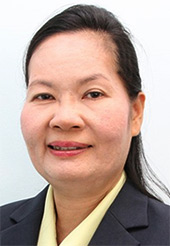
|
| |
|
On the Other Authors
- Min Ma (Myanmar) is an independent consultant and researcher on migration issues in the Southeast Asia region. She holds a Master of Arts in Law and Diplomacy from Tufts University, USA.
Address: Master of Arts in International Development Studies (MAIDS) at Chulalongkorn University, Phayathai Road, Bangkok 10330, Thailand.
- Vongsa Chayavong (Thailand) is a lecturer at the Institute of Vocational Training in Louang Namtha, Lao PDR. He is a graduate in the Master of Arts in International Development Studies (MAIDS) at Chulalongkorn University, Thailand.
Address: Master of Arts in International Development Studies (MAIDS) at Chulalongkorn University, Phayathai Road, Bangkok 10330, Thailand.
- Lahpai Nang Sam Aung (Myanmar) is an ethnic Kachin from Myanmar and a graduate in the Master of Arts in International Development Studies (MAIDS) at Chulalongkorn University, Thailand.
Address: Master of Arts in International Development Studies (MAIDS) at Chulalongkorn University, Phayathai Road, Bangkok 10330, Thailand.
|
- Hkawn Ja Aung (Myanmar) is an ethnic Kachin from Myanmar and a graduate in the Master of Arts in International Development Studies (MAIDS) at Chulalongkorn University, Thailand.
Address: Master of Arts in International Development Studies (MAIDS) at Chulalongkorn University, Phayathai Road, Bangkok 10330, Thailand.
- Nwe Ni Win Kyaw (Myanmar) is an official in the Government of Myanmar and a graduate in the Master of Arts in International Development Studies (MAIDS) at Chulalongkorn University, Thailand.
Address: Master of Arts in International Development Studies (MAIDS) at Chulalongkorn University, Phayathai Road, Bangkok 10330, Thailand
.
- Ni Ni Win (Myanmar) is experienced in the monitoring and evaluation and implementation of child protection and rights programs and works with community volunteers and international and local NGO staff. She joined the Australian -ASEAN Program on Trafficking in Person (AAPTIP) project on Victim's Experiences with and in the Criminal Justice Process in Myanmar. A graduate from the Master of Arts in International Development Studies (MAIDS) at Chulalongkorn University, Thailand.
Address: Master of Arts in International Development Studies (MAIDS) at Chulalongkorn University, Phayathai Road, Bangkok 10330, Thailand.
|
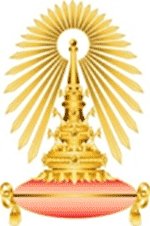
Chulalongkorn University
Chulalongkorn University, Thailand’s first institution of higher education, officially came into being in March 1917. The groundwork and preparation for it in terms of planning and development, however, took place more than a century ago. The worldwide economic, social and political changes in the late nineteenth century contributed to Siam’s decision to adapt herself in order to avoid conflict with the Western powers (“Siam” became “Thailand” in the year 1939). Thus the royal policy of King Chulalongkorn (Rama V) was to strengthen and improve government so that the country could successfully resist the tide of colonialism. One of the major parts of the policy, which would later prove to be deep-rooted and highly effective, was to improve the Siamese educational system so as to produce capable personnel to work in both the public and private sectors. As a result, a school was founded in 1871 at the Royal Pages’ Barracks within the Grand Palace compound.
The development of Chulalongkorn University continued. From 1934 to 1958, the university emphasized the improvement of undergraduate education, and more faculties were established. In 1961 the university set up the Graduate School to be responsible for graduate-level education. From 1962 till the present, the university has focused on graduate education and has set up research centres and institutes. The University, known familiarly as “Chula”, has grown constantly in the near-century since its founding.
At present Chulalongkorn University is composed of 19 faculties, 23 colleges and 17 research institutes. Currently there are over 38,000 students including 24,951 undergraduates, 13,391 postgraduates (10,881 on the Master’s Degree and 2,150 on the Doctoral Degree programmes) and 2,800 faculty members. Its 87 international programmes have enjoyed a long and deserved high reputation for all-round academic attainment.
According to many Asian university rankings, Chulalongkorn University is Thailand’s highest-ranked institution, with the highest scores in many subjects including Arts and Humanities, Social Sciences and Management, Natural Sciences, Engineering and Technology, and Life Sciences and Medicine.
Chulalongkorn University’s Strategy 2012–2016 has been undertaken to formulate guidelines for the university’s development plan. The initiative focuses on different aspects of development and improvement with the objective of raising the university to a level of excellence that will qualify it as a “World Class National University” and as the “Pillar of the Kingdom”.
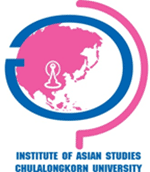
The Institute of Asian Studies (IAS)
The Institute of Asian Studies (IAS) is an interdisciplinary research, teaching and service organization. IAS was established in 1967 as a unit within the Faculty of Political Science at Chulalongkorn University. After a considerable expansion of activities at IAS in 1979, an upgrade in the Institute’s status was determined to be necessary. Consequently, on 10 May 1985, IAS was officially recognized as a separate institute at Chulalongkorn University, granting IAS a status equivalent to that of a faculty at the university.
Today, the strategic vision for IAS is to continue to serve the Thai community and the Asian region as a source of knowledge and expertise for a broad range of subject areas in the region including economic, social, political, and security concerns. This has been accomplished through the diligence and cooperation of a team of highly-qualified researchers who possess specialized knowledge about each country and subregion within Asia.
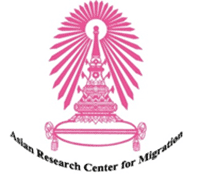
Asian Research Center for Migration
The Asian Research Center for Migration, based at the Institute of Asian Studies of Chulalongkorn University, is an internationally recognized centre of excellence in social science research. Located on the historic campus of Chulalongkorn University in the heart of Bangkok, ARCM is an important contributor to the research output of Thailand’s oldest and most respected institution of higher learning, conducting critical policy-relevant research on international migration into, out of and within the South East Asian Region.
History
ARCM was initially founded in 1987 as the Indo-Chinese Refugee Information Center. The Center was established with the mission of conducting research on the flows of refugees from Cambodia, Laos, Vietnam and other South East Asian countries seeking asylum in Thailand. After the Indo-Chinese refugee crisis had abated in Thailand and the refugee camps were closed under the Comprehensive Plan of Action, the Center began to conduct research on new refugee situations that had begun to emerge in South East Asia. In recognition of this newly broadened research focus, the Center was reconstituted as the Asian Research Center for Migration in 1995. Since that time, the thematic areas of ARCM’s research have expanded significantly and now include projects on all forms of international migration in South East Asia with a particular emphasis on Thailand as a sending, receiving and transit country.
Research Activities
Through published research, statistical data, consultation and policy recommendations related to cross-border migration in the South East Asia Region, the objective of ARCM’s research activity is to support evidenced-based decision-making by governments, international agencies, and private sector organizations on migration-related issues. These activities are conducted by a multidisciplinary team of committed researchers, including both Thai and international experts, with backgrounds in a diverse range of academic fields relevant to migration such as sociology, anthropology, political science, economics and law. |
|
|
|